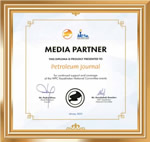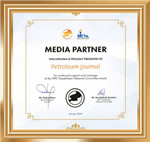Editor❜s Note
Editor❜s Note
#3 (147), June 2024 special issue
Traditionally, the June issue of the journal is dedicated to oil refining and petrochemicals. Just a couple of years ago, we were summarizing the nearly decade-long and finally completed Comprehensive Modernization Program of the oil refining industry. Today, it turns out, we are on the brink of another equally ambitious initiative.
Gender balance
#1 (145), February 2024 special issue
"No offense to men, but women are generally more attentive to work, approach tasks more meticulously, and are less prone to corruption. The statistics from the Anti-Corruption Agency indicate that women behave more responsibly."
The bold forecasts for the global economy
#6 (144), December 2023
In its «Shocking Predictions» for 2024, released on December 5th, Saxo Bank forecasted an increase in oil prices to $150 per barrel. Saxo Bank traditionally publishes these bold forecasts for the global economy at the end of each year, which are often taken with a grain of salt and seen as tongue-in-cheek to entertain the audience. After all, the Danish bank describes scenarios that at first glance seem utterly improbable, with the caveat that should they occur, a colossal shockwave could hit the markets.
From the publisher
#5 (143), November 2023
Of the fifteen KAZENERGY Forums held initially annually and then biennially, I have participated in fourteen. This gave me a firsthand view of how the agenda in the industry evolved over the years. Just a month ago in Astana, the milestone XV Forum took place, coinciding with Kazakhstan Energy Week—a highlight we discuss in this issue.
From the publisher
#3 (141), June 2023
One year after the release of our previous special issue on petrochemicals and petroleum refining (Petroleum, No. 3-2022), several significant events have transpired. These events indicate substantial steps towards the development of a domestic gas chemical industry.
December is traditionally the summing-up month
#6 (138), December 2022
December is traditionally the summing-up month. This year, unfortunately, does not have optimism. It began with widespread protests, turned by the "puppeteers" into riots and pogroms in January, and it increased the degree of tension in February when hostilities began in Ukraine.
Petroleum Council Accredits Petroleum Journal
#5 (137), November 2022
On September 28, the certificate of accreditation was presented to the publisher of the journal Oleg Chervinskiy by the Director General of the Kazenergy Association Kenzhebek Ibrashev at the Kazakh-British Technical University in Almaty.
The World Petroleum Council accredits Petroleum Journal
#4 (136), September 2022
On September 28, the certificate of accreditation was presented to the publisher of the journal Oleg Chervinskiy by the Director General of the Kazenergy Association Kenzhebek Ibrashev at the Kazakh-British Technical University in Almaty.
The key topic of today's issue
#3 (135), June 2022 special issue
The key topic of today's issue is the oil refining industry (existing) and petrochemistry (which we have been trying hard to create over the past decade).
What are we doing wrong? Why has Kazakhstan not become an exporter of petroleum products after an expensive program of modernization of domestic refineries? Will there be enough raw materials for gas chemistry in the country, and will we be able to compete with our neighbors Russia, China, and Uzbekistan in sales of manufactured products?
February
#1 (133), February 2022
The issue of the journal you are holding in your hands is unusual. At first glance, its key theme, green energy and sustainable development, is far from the problems of oil and gas production
December
#6 (132), December 2021
You are holding a special issue of the journal dedicated to the anniversary of the Independence of Kazakhstan.
October
#5 (131), October 2021
The XIV Eurasian KAZENERGY Forum has become more than just a forum – after one and a half pandemic years, it, held in October in Nur-Sultan, marked the beginning of a return to normality.
February
#1 (127), February 2021
In early February, the Financial Times cautiously predicted the start of a new cycle in commodity markets. The publication's forecasts are based on conversations with investment bankers who advise their clients to increase their investments in raw materials, the demand for which, in their opinion, should grow due to the rapid recovery of the global economy after the pandemic.


